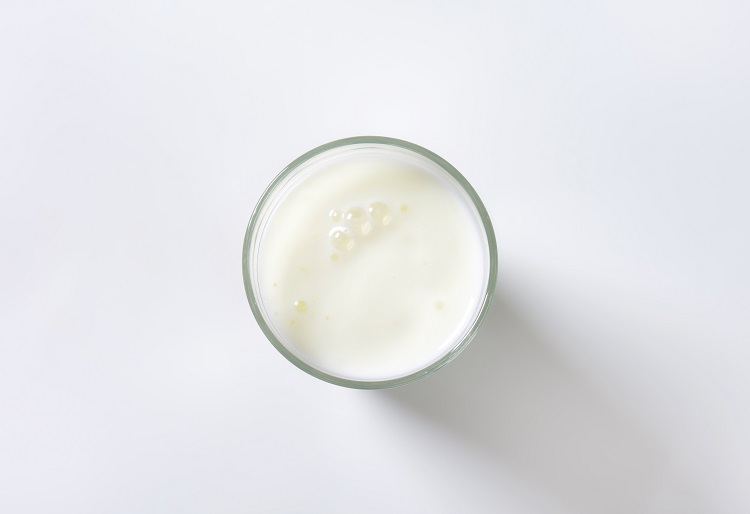
The alt milk space has exploded in recent years. What was a market worth $609.19m (€560.53m) in 2018 is predicted to reach $2.22bn by 2025, according to Mordor Intelligence.
The rise in prevalence of lactose intolerance is certainly contributing to increased demand for dairy-free. As is growing consumer concern for health, the environment, and animal welfare.
Start-ups and established brands alike have been working hard to meet this booming demand. Today, big names in the category include Danone-owned Alpro, Californian cooperative Diamond Blue Growers, and Sweden-headquartered Oatly.
In food and beverage categories, the most popular items include dairy-free yoghurt and frozen desserts, soymilk, almond milk, coconut milk and rice milk.
A new start-up preparing to enter the dairy alternative scene, however, is taking a different approach to dairy-free: one that involves microbes, rather than plants.
CEO and co-founder Aviv Wolff of Remilk says that unlike many of the dairy alternatives on the market, its products will set themselves apart in ingredients ratio alone
“Existing milk alternatives consist of, on average, nearly 97% water,” Remilk’s Wolff told FoodNavigator. “These are not milk alternatives; these are water alternatives.”
Dairy-free, yet ‘behaves the same way as cow’s milk’
Remilk was founded by entrepreneurs Wolff and Ori Cohavi in 2019. Their vision, according to Wolff, was founded on sustainability – including animal welfare – and taste.
“We love milk, but at the same time, we think that using [livestock] to make our food is a primitive and destructive technology,” the CEO explained.
“The world needs sustainable foods for so many reasons, but if we want people to eat sustainable food, it needs to taste damn good – and that’s exactly what we’re doing at Remilk.”
Compared with regular milk, Remilk’s products will be more sustainable ‘by an order of magnitude’. It requires less land, time, feedstock, and water.
The process also produces less waste, the CEO continued. “We can replace some remarkably wasteful processes that require huge amounts of input and generate huge amounts of waste with processes that are much more effective and reliable.”
Unlike Remilk’s plant-based competitors, the start-up uses microbes to produce the key ingredients in milk. The milk can then be formulated into real dairy products.
The end result, which takes ‘just a few days’ to produce, is a functional, versatile, animal-free milk that behaves the same way as cow’s milk, Wolff continued. “Thus, it can be transformed into most dairy products.”
The start-up is remaining tight-lipped about its ingredients list while it files for patent protection but revealed the manufacturing process is inspired by cheesemaking processes.
“The traditional processes of cheesemaking, for example, are major contributors to both taste and texture,” the CEO told this publication. “And since we preserve the exact same process, we also preserve these unique dairy properties.”
‘Reinventing the meaning of dairy’
Despite the growing number of milk alternatives on the market, Remilk says they ‘almost universally’ fall short in three key areas: flavour, functionality, and nutrition.
Concerning flavour, the CEO said if the goal is for the broader community to consume sustainable food, it needs to be delicious and ‘require no lifestyle compromise’.

On functionality, Wolff told this publication the vegan cheese market is at least 10 years behind the vegan milk alternative market. “That’s because plant-based proteins that are used in the processing of vegan cheeses and highly non-functional. In other words, you cannot turn soymilk into soy cheese.”
And finally, the CEO says Remilk’s products will not only be healthier than alternatives on the market but will also be ‘profoundly’ healthier than regular milk – with no lactose, no cholesterol, no growth hormones, and no antibiotics.
Eventually, the start-up aims to ‘replace cows as food factories’ by creating ‘every dairy product out there’. To ensure it reaches scale, Remilk is targeting a broad demographic.
“There’s one main reason why the dairy industry is facing massive challenges these days. This reason can be explained in one simple word: Flexitarian,” Wolff revealed.
“A flexitarian is a person who actively integrates non-dairy and non-meat meals into their everyday diet. In fact, 38% of all Americans follow a flexitarian diet.”
The company believes it has determined how it will eventually scale up its technology to create dairy products at a competitive price. “We’re negotiating with potential partners to allow us to scale our operations for mass production.”
Regulatory barriers may also be a factor in marketing Remilk’s products, the CEO revealed. “The products do require regulatory approvals. [But] we only use food-grade components so our products are completely safe for both the consumers and the planet.”
Concerning business growth, Remilk has closed its seed funding round, but continues to look for additional investment, the CEO revealed.
Remilk has also been selected as one of 10 start-ups to undergo the three-month ProVeg International business incubator programme. Every start-up that joins the incubator receives a grant of €20,000, with the possibility of securing further funding of up to €180,000 following completion of the programme.